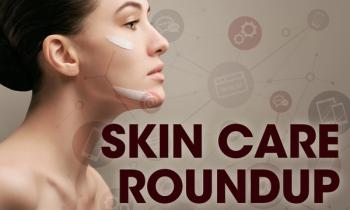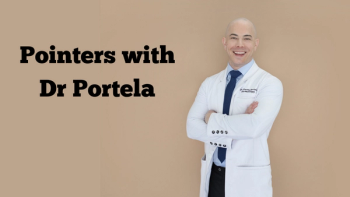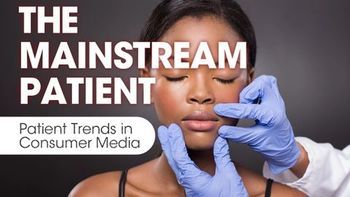
Advice to new graduates
Graduation is a time of change and reflection, of hope and anticipation. As tomorrow’s clinicians prepare to change lives, they are also undergoing the biggest change of their own. Leaders in the profession remember these times, and share their advice.
“Always say ‘yes’”
Adam Friedman, MD, FAAD
Associate professor of dermatology, residency program director, director of translational research, director of the supportive oncodermatology clinic, department of dermatology at the George Washington School of Medicine and Health Sciences
For many coming out of residency, there is a sudden blackout going from being in an academic center to which any and all information, invitations, and resources are at one’s beckon call to the real world. Many of the requests to attend meetings-for free mind you-and serve on committees, resident-specific grants and awards, all the journals, the magazines suddenly disappear. Well it doesn’t have to be this way. In fact, if you plan for the winter of the real world, the transition can be effortless, but plan you must.
One general philosophy to abide by early in one's career is always say ‘yes.’ It is not simply FOMO, though this certainly helps one jump on every career advancing opportunity, but truthfully career development can and should start on day zero of residency. Use every opportunity to gain mentors, build networks, and prove your worth.
I certainly took advantage of many of the options as a resident, applying for multiple grants and awards, attending as many conferences within reason and using the time spent there wisely-honestly I wish I did more. Looking at your residency as more then simply training in dermatology will allow you to bust out into the community well-armed to combat the disconnect once your trainee cord is cut. Simply graduating residency is not enough. You need to be hungry for more. You need to put in the work. Serve for the love of service. Yes, you are a specialist but being board-eligible/board-certified does not make you an expert among your peers-even if you have 1,000 followers on Instagram. Just like with an NIH grant, you already need a track record to build a track record. Don't expect handouts, but if you start early, build your brain trust, demonstrate your willingness to work hard and invest your time, the spoils will follow.
“Eliminate the noise”
Tina S. Alster, MD
Director of the Washington Institute of Dermatologic Laser Surgery, clinical professor of dermatology at Georgetown University
Know more about your subject than anyone else. That means doing your homework and reading everything available on the subject, as well as related subjects to broaden your perspective. Do not overwhelm your mentor with questions that can be answered by doing your homework. I have e-mail rules for my patients and prospective mentees-Keep it short! No more than three questions, and they cannot be multi-part questions. If the question can be posed such that a “yes” or “no” answer is possible, all the better!
Eliminate the “noise.” Identify what makes you happy, rather than focusing on what makes everyone else happy. Do not fear disappointing your mentors, family, and friends. At the end of the day, it’s your life and you are responsible for your own happiness. Finally, pay it forward. When you’re ready, become a mentor yourself. Passing knowledge and experience on to others brings immense fulfillment and joy into your life.
“Organize and find balance”
Doris Day, MD, FAAD, MA
Board-certified dermatologist at Day Dermatology & Aesthetics, and clinical associate professor of dermatology at New York University Langone Medical Centers.
Balance, now there’s a word! The modern woman fought so hard for the right to do it all, and we won! The challenge has been that we’ve added more to our already full plates and put ourselves at risk for burnout and loss of personal satisfaction.
I always knew I wanted to be a doctor and equally important to me was having a family. I knew there had to be a way to do it all, AND what I learned along the way was how emotionally satisfying it could be and how much my family would benefit from the process as well. Here are the secrets to making it happen:
1. Love what you do and do it with passion. Your children will feel that energy and appreciate it. If you come home happy and fulfilled, your family will thrive on that energy.
2. Be present. At home, put away the phone and laptop, your kids know when you’re all there or when you’re distracted. At work, get it done and leave it in the office. Compartmentalization takes practice and is an essential skill for balance between work and home life.
3. Make time for you. It’s hard to make time for yourself without guilt. I submit to you that “you” time is as important as family and work. Time will expand to make room for it in your greater efficiency and joy in everything else you do.
4. Be maximally efficient. Take stock of everything on your plate. Do you really want or need to be doing all these things? Eliminate the extras then determine the best way delegate what you can. Over time it gets easier as you get into the rhythm of being maximally organized and efficient in getting things done. It’s truly one of the biggest secrets to success and making the most of your time.
5. Know it’s a team effort. I learned early on that by expecting more of those around me, everyone rose to the occasion and the sense of accomplishment was a shared experience. At home, my children were expected to participate in pretty much everything from a young age. I was the antithesis of the helicopter mom. When the kids wanted to go to sleep away camp, my line was, “find a camp, make a presentation, and if I approve, I’ll pay for it.” They did it, loved the camp and still to this day talk with pride about the experience.
6. Let it go. You can’t be all things to all people at all times. Be happy where you are and know that your kids appreciate you more knowing that your time matters too and they will be proud of you, as you are of them when they celebrate your success as you celebrate theirs.
How you manage the balance between work and family and self is a personal choice and there’s no right or wrong. It takes soul searching to know your own heart and desires and to have the confidence to go for what works for you. Letting go of guilt and regret is not easy, but it is possible to have a balance that works for you and to be fulfilled in your personal life as well as your chosen career. True work-life balance is understanding that there is a blend and the borders are not always a clear line.
“Mentors are the teachers and the students”
Ronald Wheeland, MD
Former president of the American Academy of Dermatology, the American Society for Dermatologic Surgery and the American Society for Laser Medicine and Surgery.
I believe mentoring should be a significant part of every physician's career and I feel extremely fortunate to have found terrific mentors in just about every part of my life. As a child, I witnessed first-hand the value of hard work and never giving up from my grandfather, a skilled cabinet maker who was only able to provide for his family during the Great Depression by mining with a pick and shovel for gold and silver in the hot and dry Arizona desert. The dean of my medical school, Dr. Merlin K. DuVal, not only took the time and energy to show me the value and joy one can get from mentoring, but also the importance of providing continual support even years later by occasionally calling or simply writing a short note of recognition. Dr. Leon Goldman, considered by many to be the "Godfather of Lasers in Medicine," shared his enthusiasm and energy by teaching me many things about lasers, but also the importance of being creative in developing new laser techniques and technologies and then sharing them willingly with others.
Finally, I think it's extremely important to listen to those who work around you because I've learned that many times they have become my mentors instead of the reverse. I have felt guilty at times since I honestly believe I've learned far more from my nurses, students, residents and fellows than I ever taught them. Mentors can come in all shapes and sizes, all one must do to become an effective mentor is show a willingness to share knowledge, patience and support. If one does these things the rewards will be unlimited.
Newsletter
Like what you’re reading? Subscribe to Dermatology Times for weekly updates on therapies, innovations, and real-world practice tips.










